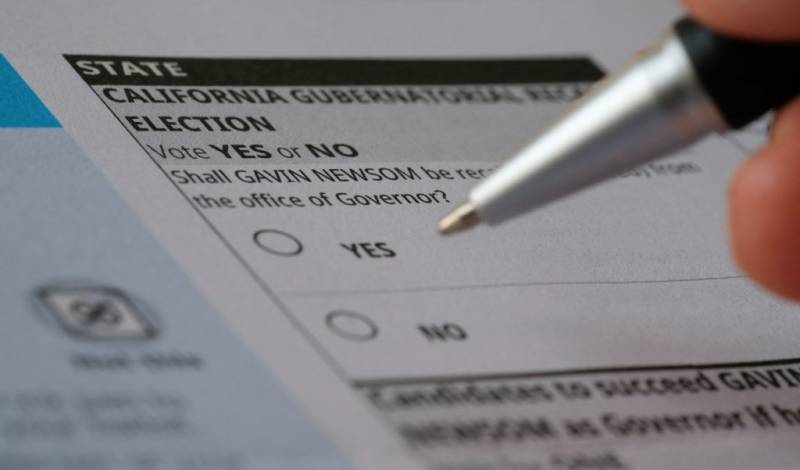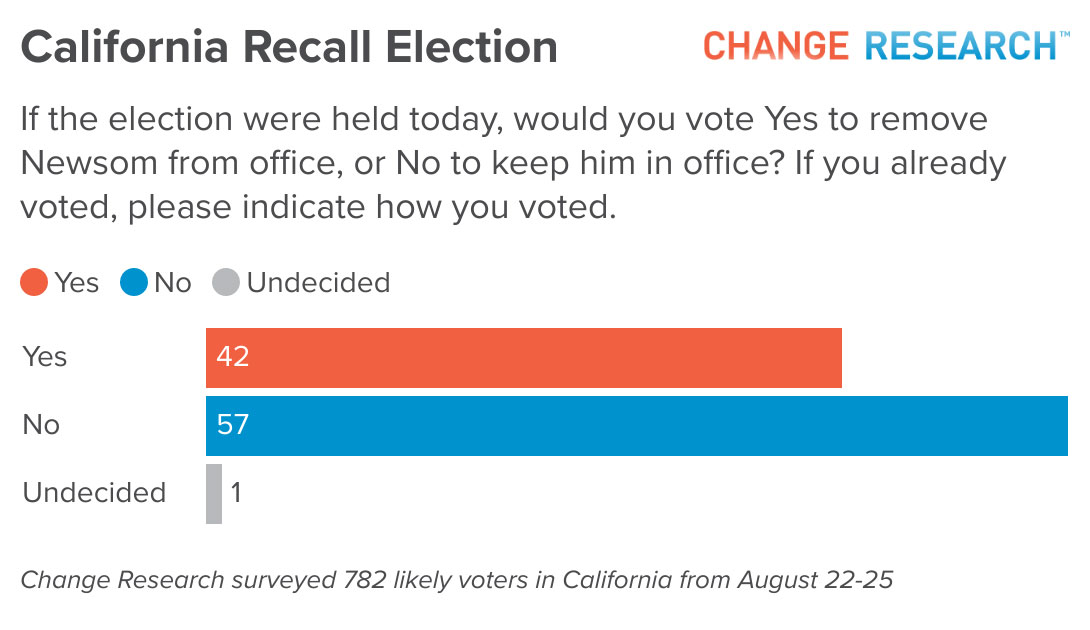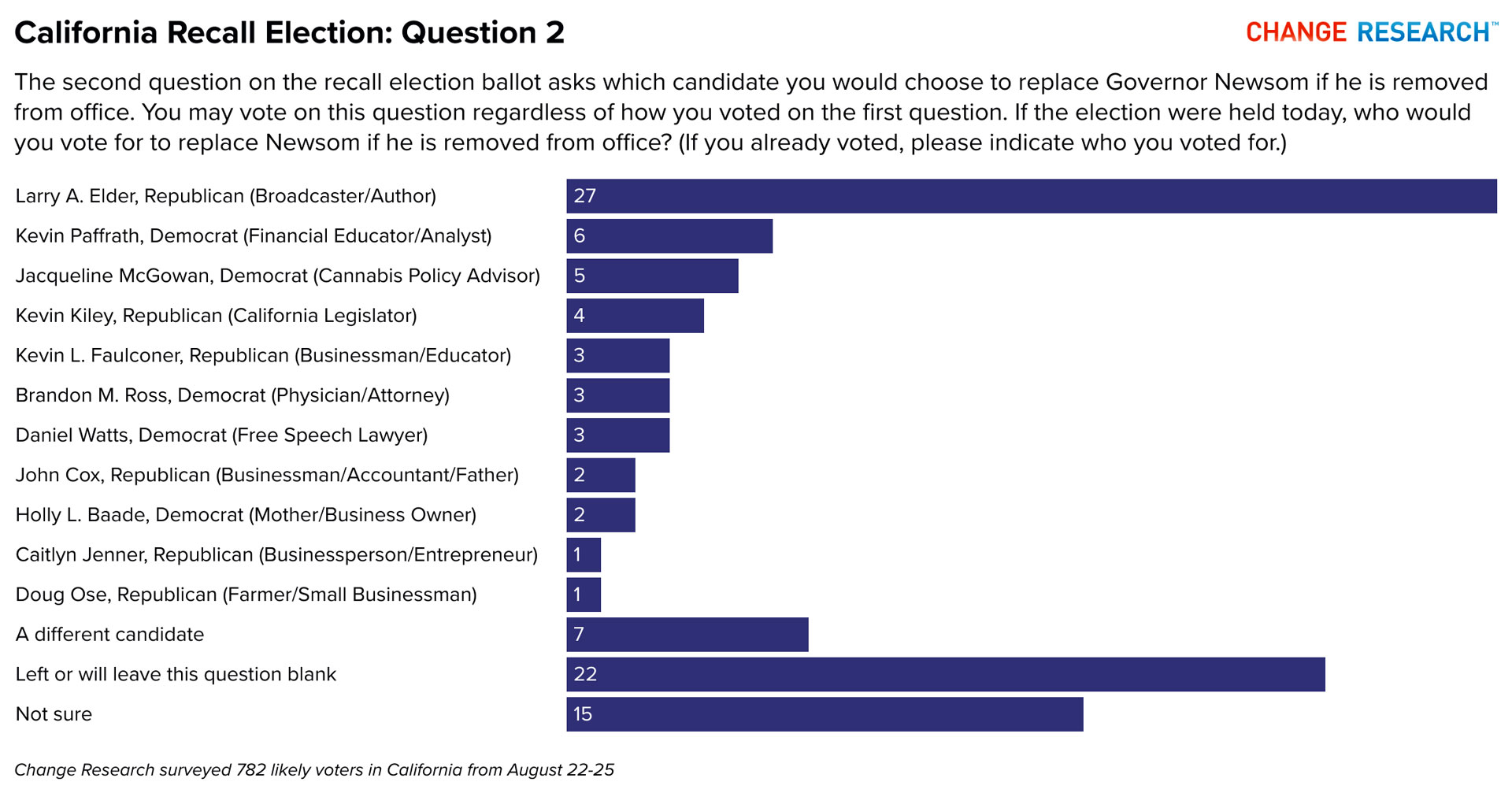For weeks, the prevailing assumption heading into California's Sept. 14 recall election has been that Republicans are far more likely to vote than Democrats, placing Gov. Gavin Newsom at risk of being tossed out of office, despite the state's overwhelmingly Democratic electorate.
But a new survey of 782 likely voters, conducted by Change Research, a San Francisco-based polling firm that works for Democratic clients and progressive causes, indicates Democrats are paying closer attention now. The poll found that 92% of Democrats queried said they either planned to vote or had already sent in their ballots. That's up from 84% in the firm's June poll.
With more Democrats joining the "likely voter" pool, the survey found 42% of likely voters supporting the recall and 57% opposing it. Just 1% said they were undecided.
"To me, these are very encouraging numbers for Newsom and the 'no' campaign," said Change Research's senior pollster Ben Greenfield.
The previous poll showed 43% of likely voters supporting the recall and 54% against it.



